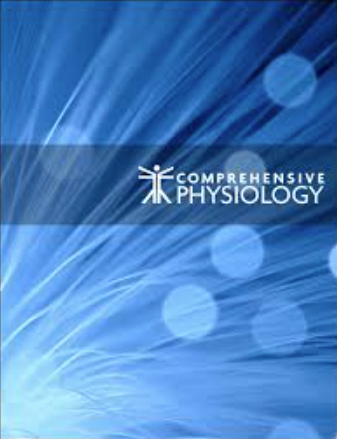下载PDF
{"title":"Insulin Regulation of Hepatic Lipid Homeostasis.","authors":"Kahealani Uehara, Dominic Santoleri, Anna E Garcia Whitlock, Paul M Titchenell","doi":"10.1002/cphy.c220015","DOIUrl":null,"url":null,"abstract":"<p><p>The incidence of obesity, insulin resistance, and type II diabetes (T2DM) continues to rise worldwide. The liver is a central insulin-responsive metabolic organ that governs whole-body metabolic homeostasis. Therefore, defining the mechanisms underlying insulin action in the liver is essential to our understanding of the pathogenesis of insulin resistance. During periods of fasting, the liver catabolizes fatty acids and stored glycogen to meet the metabolic demands of the body. In postprandial conditions, insulin signals to the liver to store excess nutrients into triglycerides, cholesterol, and glycogen. In insulin-resistant states, such as T2DM, hepatic insulin signaling continues to promote lipid synthesis but fails to suppress glucose production, leading to hypertriglyceridemia and hyperglycemia. Insulin resistance is associated with the development of metabolic disorders such as cardiovascular and kidney disease, atherosclerosis, stroke, and cancer. Of note, nonalcoholic fatty liver disease (NAFLD), a spectrum of diseases encompassing fatty liver, inflammation, fibrosis, and cirrhosis, is linked to abnormalities in insulin-mediated lipid metabolism. Therefore, understanding the role of insulin signaling under normal and pathologic states may provide insights into preventative and therapeutic opportunities for the treatment of metabolic diseases. Here, we provide a review of the field of hepatic insulin signaling and lipid regulation, including providing historical context, detailed molecular mechanisms, and address gaps in our understanding of hepatic lipid regulation and the derangements under insulin-resistant conditions. © 2023 American Physiological Society. Compr Physiol 13:4785-4809, 2023.</p>","PeriodicalId":10573,"journal":{"name":"Comprehensive Physiology","volume":"13 3","pages":"4785-4809"},"PeriodicalIF":5.2000,"publicationDate":"2023-06-26","publicationTypes":"Journal Article","fieldsOfStudy":null,"isOpenAccess":false,"openAccessPdf":"https://www.ncbi.nlm.nih.gov/pmc/articles/PMC10760932/pdf/","citationCount":"0","resultStr":null,"platform":"Semanticscholar","paperid":null,"PeriodicalName":"Comprehensive Physiology","FirstCategoryId":"3","ListUrlMain":"https://doi.org/10.1002/cphy.c220015","RegionNum":2,"RegionCategory":"医学","ArticlePicture":[],"TitleCN":null,"AbstractTextCN":null,"PMCID":null,"EPubDate":"","PubModel":"","JCR":"Q1","JCRName":"PHYSIOLOGY","Score":null,"Total":0}
引用次数: 0
引用
批量引用
Abstract
The incidence of obesity, insulin resistance, and type II diabetes (T2DM) continues to rise worldwide. The liver is a central insulin-responsive metabolic organ that governs whole-body metabolic homeostasis. Therefore, defining the mechanisms underlying insulin action in the liver is essential to our understanding of the pathogenesis of insulin resistance. During periods of fasting, the liver catabolizes fatty acids and stored glycogen to meet the metabolic demands of the body. In postprandial conditions, insulin signals to the liver to store excess nutrients into triglycerides, cholesterol, and glycogen. In insulin-resistant states, such as T2DM, hepatic insulin signaling continues to promote lipid synthesis but fails to suppress glucose production, leading to hypertriglyceridemia and hyperglycemia. Insulin resistance is associated with the development of metabolic disorders such as cardiovascular and kidney disease, atherosclerosis, stroke, and cancer. Of note, nonalcoholic fatty liver disease (NAFLD), a spectrum of diseases encompassing fatty liver, inflammation, fibrosis, and cirrhosis, is linked to abnormalities in insulin-mediated lipid metabolism. Therefore, understanding the role of insulin signaling under normal and pathologic states may provide insights into preventative and therapeutic opportunities for the treatment of metabolic diseases. Here, we provide a review of the field of hepatic insulin signaling and lipid regulation, including providing historical context, detailed molecular mechanisms, and address gaps in our understanding of hepatic lipid regulation and the derangements under insulin-resistant conditions. © 2023 American Physiological Society. Compr Physiol 13:4785-4809, 2023.

 求助内容:
求助内容: 应助结果提醒方式:
应助结果提醒方式:


